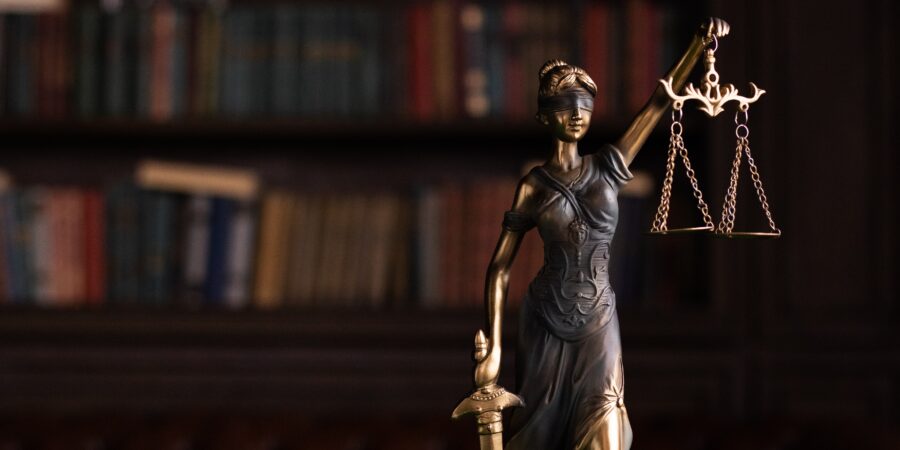FACTS:
Noe-Lacsamana alleged in her complaint that she was the counsel for Irene Bides, the plaintiff in a civil case before the RTC, while Busmente was the counsel for the defendant Imelda B. Ulaso (Ulaso).
Noe-Lacsamana alleged that Ulaso’s deed of sale over the property subject of the case was annulled, which resulted in the filing of an ejectment case (Civil Case No. 9284), where Busmente appeared as counsel.
Another case for falsification was filed against Ulaso where Busmente also appeared as counsel. Noe-Lacsamana alleged that one Atty. Dela Rosa would accompany Ulaso in court, projecting herself as Busmente’s collaborating counsel.
Dela Rosa signed the minutes of the court proceedings.
Noe-Lacsamana further alleged that the court orders and notices specified Dela Rosa as Busmente’s collaborating counsel. However, upon verification with this Court and the Integrated Bar of the Philippines, she discovered that Dela Rosa was not a lawyer.
Busmente alleged that Dela Rosa was a law graduate and was his paralegal assistant for a few years. Busmente alleged that Dela Rosa’s employment with him ended in 2000 but Dela Rosa was able to continue misrepresenting herself as a lawyer with the help of Busmente’s former secretary.
Busmente alleged that he did not represent Ulaso in Civil Case No. 9284 and that his signature in the Answer presented as proof by Noe-Lacsamana was forged.
IBP Commission on Bar Discipline (IBP-CBD) recommended Busmente’s suspension from the practice of law for not less than five years. The IBP Board of Governors adopted and approved the recommendation of the IBP-CBD, with modification by reducing the period of Busmente’s suspension to six months.
The IBP Board of Governors denied Busmente’s motion for reconsideration.
ISSUE:
Whether Busmente is guilty of directly or indirectly assisting Dela Rosa in her illegal practice of law that warrants his suspension from the practice of law.
RULING:
We agree with the IBP.
Canon 9 of the Code of Professional Responsibility states:
Canon 9. A lawyer shall not, directly or indirectly, assist in the unauthorized practice of law.
The Court ruled that the term “practice of law” implies customarily or habitually holding oneself out to the public as a lawyer for compensation as a source of livelihood or in consideration of his services. The Court further ruled that holding one’s self out as a lawyer may be shown by acts indicative of that purpose, such as identifying oneself as attorney, appearing in court in representation of a client, or associating oneself as a partner of a law office for the general practice of law.
The Court explained:
The lawyer’s duty to prevent, or at the very least not to assist in, the unauthorized practice of law is founded on public interest and policy. Public policy requires that the practice of law be limited to those individuals found duly qualified in education and character.
The permissive right conferred on the lawyer is an individual and limited privilege subject to withdrawal if he fails to maintain proper standards of moral and professional conduct. The purpose is to protect the public, the court, the client, and the bar from the incompetence or dishonesty of those unlicensed to practice law and not subject to the disciplinary control of the Court. It devolves upon a lawyer to see that this purpose is attained.
Thus, the canons and ethics of the profession enjoin him not to permit his professional services or his name to be used in aid of, or to make possible the unauthorized practice of law by, any agency, personal or corporate. And, the law makes it a misbehavior on his part, subject to disciplinary action, to aid a layman in the unauthorized practice of law.
In this case, it has been established that Dela Rosa, who is not a member of the Bar, misrepresented herself as Busmente’s collaborating counsel in Civil Case No. 9284.
The only question is whether Busmente indirectly or directly assisted Dela Rosa in her illegal practice of law.
As pointed out by the IBP-CBD, Busmente claimed that Macasieb resigned from his office in 2003. Yet, Dela Rosa continued to represent Ulaso until 2005. Pleadings and court notices were still sent to Busmente’s office until 2005. The IBP-CBD noted that Dela Rosa’s practice should have ended in 2003 when Macasieb left.
We agree. Busmente’s office continued to receive all the notices of Civil Case No. 9284. The 7 December 2004 Order setting the preliminary conference in Civil Case No. 9284 showed that Atty. Elizabeth Dela Rosa was still representing Ulaso in the case. It would have been impossible for Dela Rosa to continue representing Ulaso in the case, considering Busmente’s claim that Macasieb already resigned, if Dela Rosa had no access to the files in Busmente’s office.
We agree with the findings of the IBP-CBD that there was sufficient evidence to prove that Busmente was guilty of violation of Canon 9 of the Code of Professional Responsibility. We agree with the recommendation of the IBP, modifying the recommendation of the IBP-CBD, that Busmente should be suspended from the practice of law for six months.
